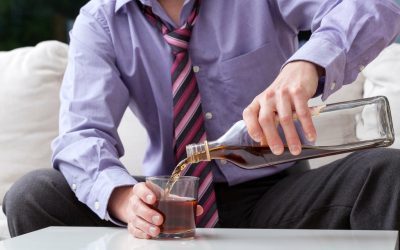What’s the Connection Between Alcohol and Depression?
It was found that thought suppression mediated the association between the toughness masculine norm and alcohol-related aggression. Depression can also be directly caused by alcohol in the case of a substance-induced disorder. Individuals diagnosed with clinical depression should be extremely cautious when it comes to using substances such as alcohol. According to Dr. Kennedy, for those taking antidepressants, combining them with alcohol can reduce their efficacy. Taking action to manage negative emotions as you experience them can help keep them from getting too overwhelming. According to the National Institute on Alcohol Abuse and Alcoholism, moderate drinking means one drink per day for women and two drinks per day for men.

If you’re physically dependent on alcohol and need to stop drinking completely, stopping suddenly could be harmful. Your GP can give you advice and/or medication to help you do this safely. Dealing with physical health problems, debt and housing issues can all affect your mental health. Provide understanding, strength and hope to anyone whose life is, or has been, https://trading-market.org/building-alcohol-tolerance/ affected by someone else’s drinking. It is a fellowship of relatives and friends of alcoholics who share their experience, strength and hope in order to solve their common problems. Younger people in the UK drink to have fun, to have the experience of losing control, to socialise more easily with others, to feel more attractive – and because their friends do.
Dangers of mixing antidepressants and alcohol
If you’re battling depression, alcohol isn’t going to make you feel better. It may temporarily suppress feelings of isolation, anxiety, or sadness, but that won’t last. If you’re concerned alcohol has become your go-to method of managing negative feelings like depression, there’s no shame in reaching out for support. If you drink regularly to manage depression symptoms, it may have be beneficial to work with a therapist who specializes in treating co-occurring depression and alcohol use.
- Another study explored the relationship between Posttraumatic Stress Disorder (PTSD), alcohol use, and violence (Blakey et al., 2018).
- In this RCT our structured brief intervention was no more effective than TAU, which consists of unstructured counselling and referrals to trained mental health professionals for psychotherapy.
- For many people with depression, symptoms usually are severe enough to cause noticeable problems in day-to-day activities, such as work, school, social activities or relationships with others.
- Interestingly, those in the control group tended to misidentify expressions as happy.
- Another example of alcohol use could be an individual that calls into work ‘sick’ because of a hangover or misses spending time with their children or family due to the effects of drinking.
They assessed 70 participants who were divided into two groups. They were directed to engage in a task with the potential to trigger aggressive verbalizations, with those who consumed alcohol showing significantly more such behavior. Identifying those factors that might contribute to heightened anger when consuming alcohol is important for individuals who have anger issues and those who treat them. Increasingly, research offers answers to determine this interaction. It’s very important to address both alcohol abuse and depression simultaneously when looking into treatment options, as these conditions are closely intertwined and can exacerbate each other, Dr. Kennedy explains. Alcohol use disorders may be mild, moderate, or severe, depending on the combination of symptoms you’re experiencing, but drinking problems can exist regardless of a clinical diagnosis.
Mental health
The easiest way to work out how much you are drinking is to count the ‘units’ of alcohol in your drinks14. Around a third of young suicides have drunk alcohol before their death, and increased drinking may have been to blame for rising rates of teenage male suicide. If you go on drinking, your speech starts to slur, you become unsteady https://g-markets.net/sober-living/when-does-alcohol-withdrawal-brain-fog-go-away/ on your feet and may start to say and do things that are out character, which you may regret when you are sober. Although younger people still drink more than other age groups, fewer people are now starting to drink at a younger age4. Children who were abused or raised in poverty appear to be more likely to develop both conditions.

Alcohol abuse and dependence are both considered an alcohol use disorder, with studies finding that alcohol dependence is more closely tied to the persistence of depressive disorders. Many studies have found that alcohol dependence is closely linked to depression. When it comes to diagnosing Sober Sayings and Sober Quotes an alcohol use disorder and a major depressive disorder, it’s important to address them simultaneously, as they can significantly impact your recovery. In some cases, you may receive a dual diagnosis of a major depressive disorder (MDD) and an alcohol use disorder (AUD).

